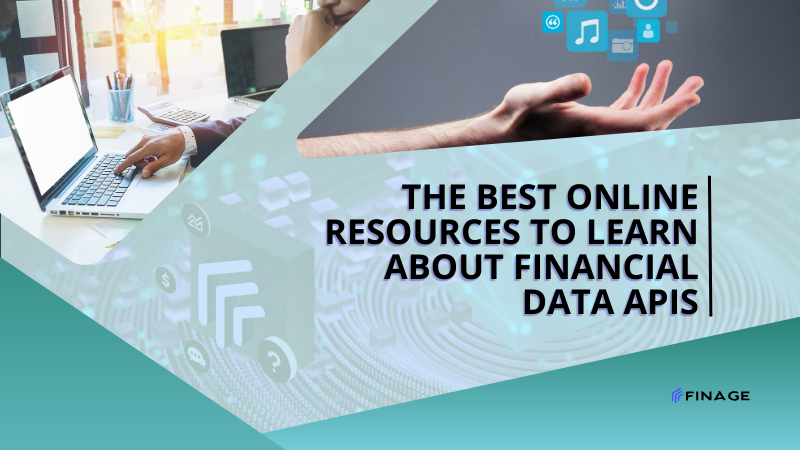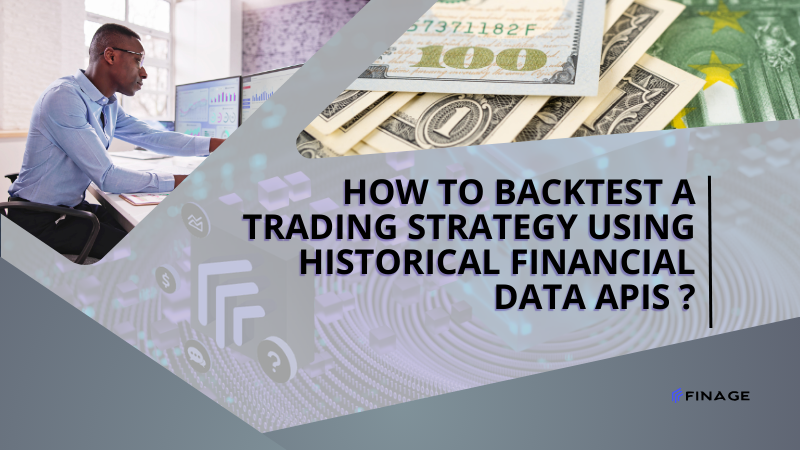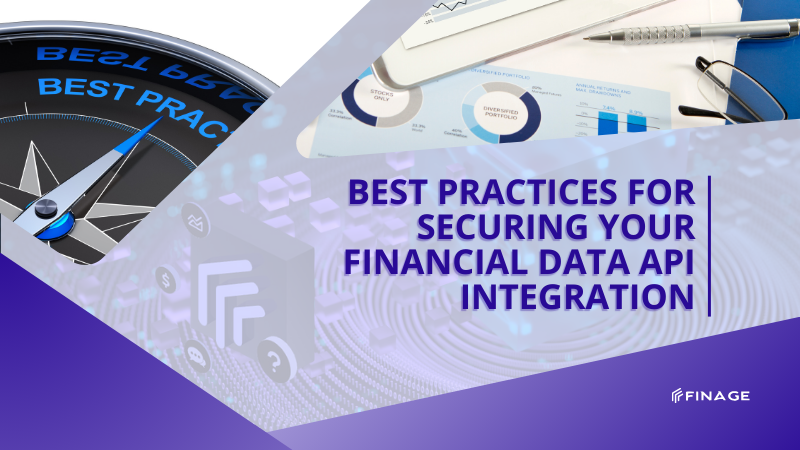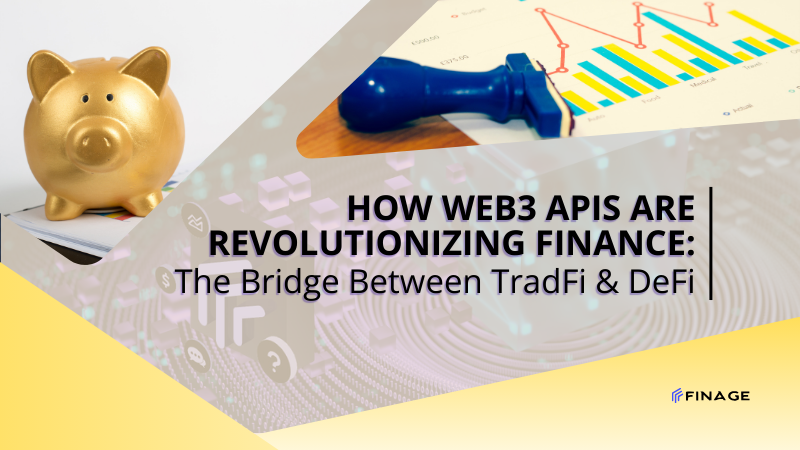Back to Blog
by Finage at February 1, 2024 • 4 MIN READ
Real-Time Data

Quantum Finance: Exploring the Possibilities
Quantum finance stands at the forefront of utilizing quantum computing to tackle intricate financial problems and models. Leveraging the distinctive capabilities of quantum computers, such as their ability to execute complex calculations at extraordinary speeds, quantum finance holds the promise of transforming critical areas within the financial sector. This blog aims to explore the burgeoning field of quantum finance, shedding light on its potential, possibilities, and implications.
One of the most notable prospects of quantum finance lies in its potential to revolutionize fundamental financial tasks, including risk assessment, portfolio optimization, and market prediction. Quantum computers possess an inherent advantage in handling vast datasets and conducting complex calculations that surpass the capabilities of classical computers. This immense processing power opens doors to more accurate and rapid assessments of risk factors, enabling financial institutions to navigate market volatility with increased precision. Moreover, quantum computing's prowess in solving optimization problems offers the potential for more efficient portfolio management, optimizing asset allocation strategies while considering multiple variables and constraints.
The implications of quantum finance extend beyond mere speed and computational prowess. Quantum algorithms have the potential to unveil new insights and patterns in financial data, enabling more sophisticated models for market prediction and trend analysis. Additionally, quantum computing's capacity to process and analyze massive datasets could lead to the development of more robust and resilient financial systems, capable of adapting to rapidly changing market conditions.
Table of Contents
- Quantum Computing in Finance
- Understanding Quantum Computing
- Potential Impact on Financial Modeling and Analysis
- Applications in Risk Management
- Complex Risk Calculations
- Scenario Analysis and Stress Testing
- Portfolio Optimization
- Enhanced Asset Allocation Models
- Handling Large, Diverse Portfolios
- Algorithmic Trading and Market Prediction
- High-Speed Trading Algorithms
- Predictive Analytics and Market Dynamics
- Challenges in Quantum Finance
- Technical and Infrastructure Barriers
- Skill Gap and Specialized Knowledge
- Ethical and Security Considerations
- Data Privacy and Encryption
- Ethical Use of Predictive Power
- Future Prospects
- Integrating Quantum Computing with AI
- Potential for Disruption in Financial Markets
- Conclusion
Quantum Computing in Finance
Understanding Quantum Computing
Quantum computing uses quantum-mechanical phenomena such as superposition and entanglement to perform operations on data, offering vastly superior processing power compared to classical computers.
Potential Impact on Financial Modeling and Analysis
Quantum computing can process complex financial models and simulations much more efficiently, providing deeper insights into financial markets and investment strategies.
Applications in Risk Management
Complex Risk Calculations
Quantum finance can significantly enhance the ability to perform complex risk calculations, offering more accurate risk assessments.
Scenario Analysis and Stress Testing
Quantum computing enables more comprehensive scenario analysis and stress testing by quickly processing numerous variables and outcomes.
Portfolio Optimization
Enhanced Asset Allocation Models
Quantum algorithms can optimize asset allocation by analyzing vast datasets, leading to more effective and profitable investment strategies.
Handling Large, Diverse Portfolios
Quantum finance can manage large, diverse portfolios more effectively, taking into account a broader range of factors and correlations.
Algorithmic Trading and Market Prediction
High-Speed Trading Algorithms
Quantum computing can develop high-speed trading algorithms that capitalize on market changes in fractions of a second.
Predictive Analytics and Market Dynamics
Advanced predictive analytics using quantum computing can offer insights into market dynamics and future trends with unprecedented accuracy.
Challenges in Quantum Finance
Technical and Infrastructure Barriers
The development and implementation of quantum computing in finance face significant technical and infrastructural barriers, including the need for specialized hardware and software.
Skill Gap and Specialized Knowledge
There is a notable skill gap in quantum computing, requiring specialized knowledge that is currently scarce in the financial sector.
Ethical and Security Considerations
Data Privacy and Encryption
With quantum computing's ability to break traditional encryption methods, ensuring data privacy and developing quantum-resistant encryption is critical.
Ethical Use of Predictive Power
The predictive power of quantum finance raises ethical questions, particularly regarding market manipulation and the equitable use of such advanced technology.
Future Prospects
Integrating Quantum Computing with AI
Integrating quantum computing with artificial intelligence could lead to groundbreaking developments in automated financial decision-making and analysis.
Potential for Disruption in Financial Markets
Quantum finance holds the potential for significant disruption in financial markets, changing how financial institutions operate and compete.
Conclusion
Quantum finance stands as a pioneering frontier within the financial industry, spearheading a technological revolution poised to transform financial analysis and decision-making. Its potential to process vast amounts of data and perform complex calculations at unprecedented speeds offers groundbreaking opportunities for innovation. However, this emerging field brings forth substantial challenges and ethical considerations that necessitate careful navigation.
The advent of quantum computing in finance heralds a new era of unparalleled computational power, promising revolutionary advancements in modeling financial scenarios, risk analysis, and portfolio optimization. Nevertheless, harnessing the potential of quantum finance requires overcoming multifaceted challenges. These challenges encompass developing quantum-resistant cryptography to safeguard sensitive financial data, refining algorithms to harness the capabilities of quantum computing effectively, and addressing ethical concerns related to privacy, data security, and fairness in financial decision-making. As quantum technologies continue to evolve, the financial industry must tread cautiously, ensuring a delicate balance between embracing innovation and safeguarding against potential risks and ethical implications. Navigating these challenges with prudence and proactive measures is essential to unlock the transformative capabilities of quantum finance while upholding ethical standards and ensuring the integrity of financial systems.
You can get your Real-Time and Historical Market Data with a free API key.
Build with us today!
Featured Posts

The Best Online Resources to Learn About Financial Data APIs
April 1, 2025

How to Backtest a Trading Strategy Using Historical Financial Data APIs
March 31, 2025

Best Practices for Securing Your Financial Data API Integration
March 30, 2025

How Web3 APIs Are Revolutionizing Finance: The Bridge Between TradFi & DeFi
March 29, 2025

The Best Books & Courses for Fintech Developers in 2025
March 28, 2025
Tags
Quantum Finance
Exploring Quantum Financial Possibilities
Quantum Computing in Finance
Quantum Algorithms for Finance
Quantum Technology in Financial Markets
Quantum Financial Modeling
Quantum Computing and Investment Strategies
Quantum Innovation in Finance
Financial Analysis with Quantum Computing
Quantum Risk Assessment
Quantum Financial Market Predictions
Quantum Machine Learning in Finance
Quantum Cryptography in Finance
Quantum Computing for Asset Management
Quantum Financial Data Processing
Quantum and Financial Optimization
Quantum Technology for Trading
Quantum Computing in Banking
Quantum Financial Simulations
Quantum Computing Impact on Finance.
Join Us
You can test all data feeds today!
Start Free Trial

If you need more information about data feeds, feel free to ask our team.
Request Consultation
Back to Blog
Please note that all data provided under Finage and on this website, including the prices displayed on the ticker and charts pages, are not necessarily real-time or accurate. They are strictly intended for informational purposes and should not be relied upon for investing or trading decisions. Redistribution of the information displayed on or provided by Finage is strictly prohibited. Please be aware that the data types offered are not sourced directly or indirectly from any exchanges, but rather from over-the-counter, peer-to-peer, and market makers. Therefore, the prices may not be accurate and could differ from the actual market prices. We want to emphasize that we are not liable for any trading or investing losses that you may incur. By using the data, charts, or any related information, you accept all responsibility for any risks involved. Finage will not accept any liability for losses or damages arising from the use of our data or related services. By accessing our website or using our services, all users/visitors are deemed to have accepted these conditions.